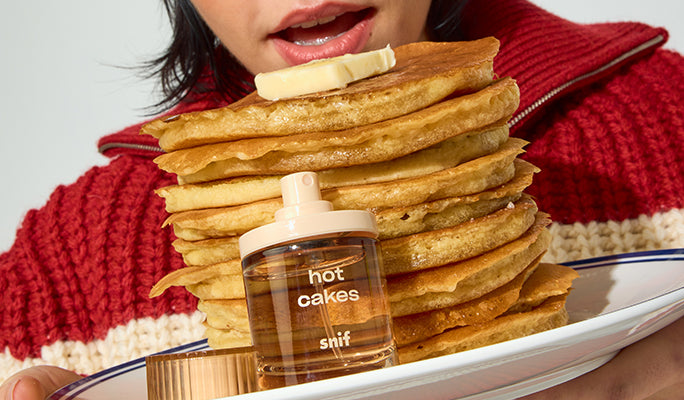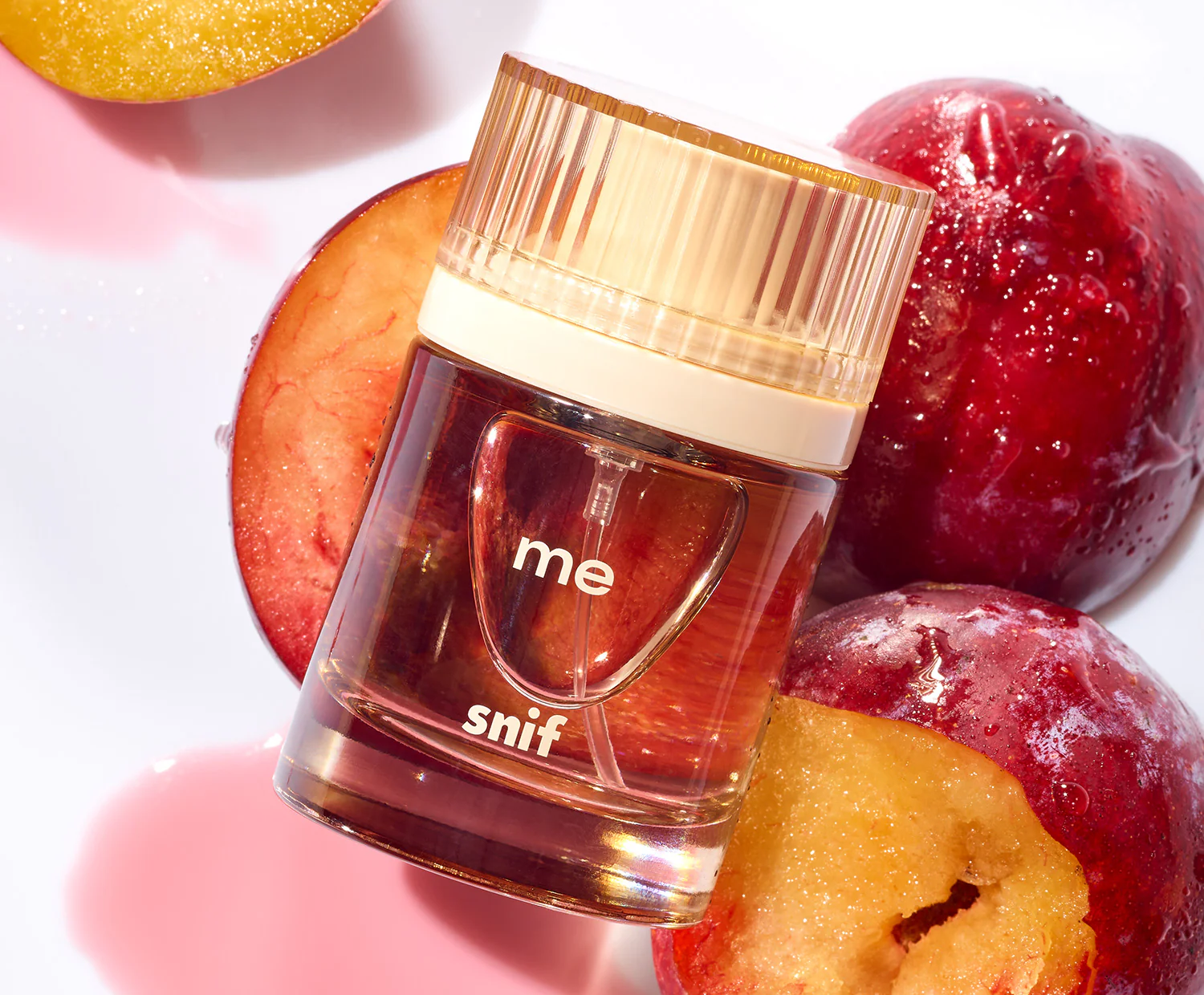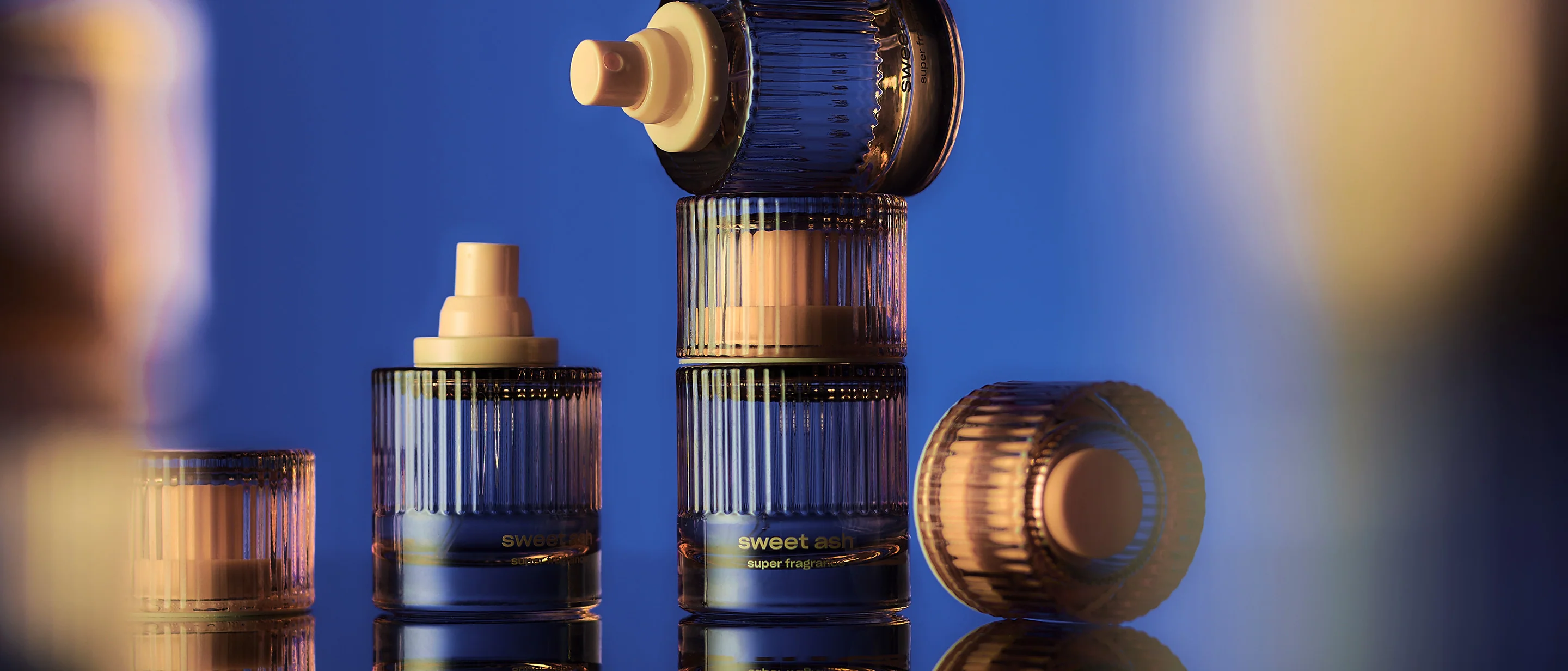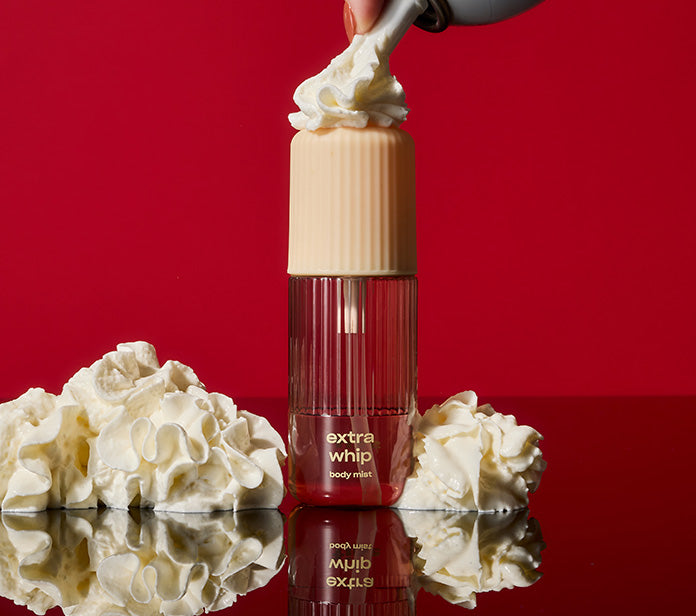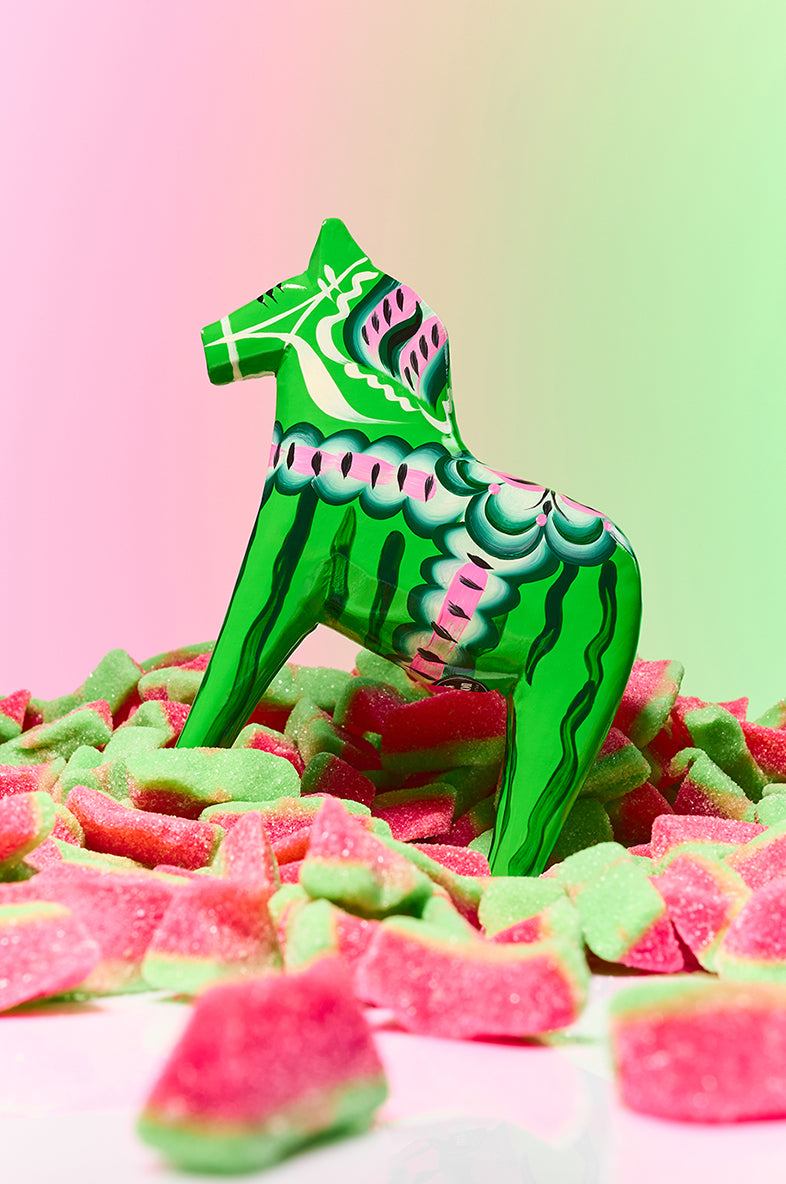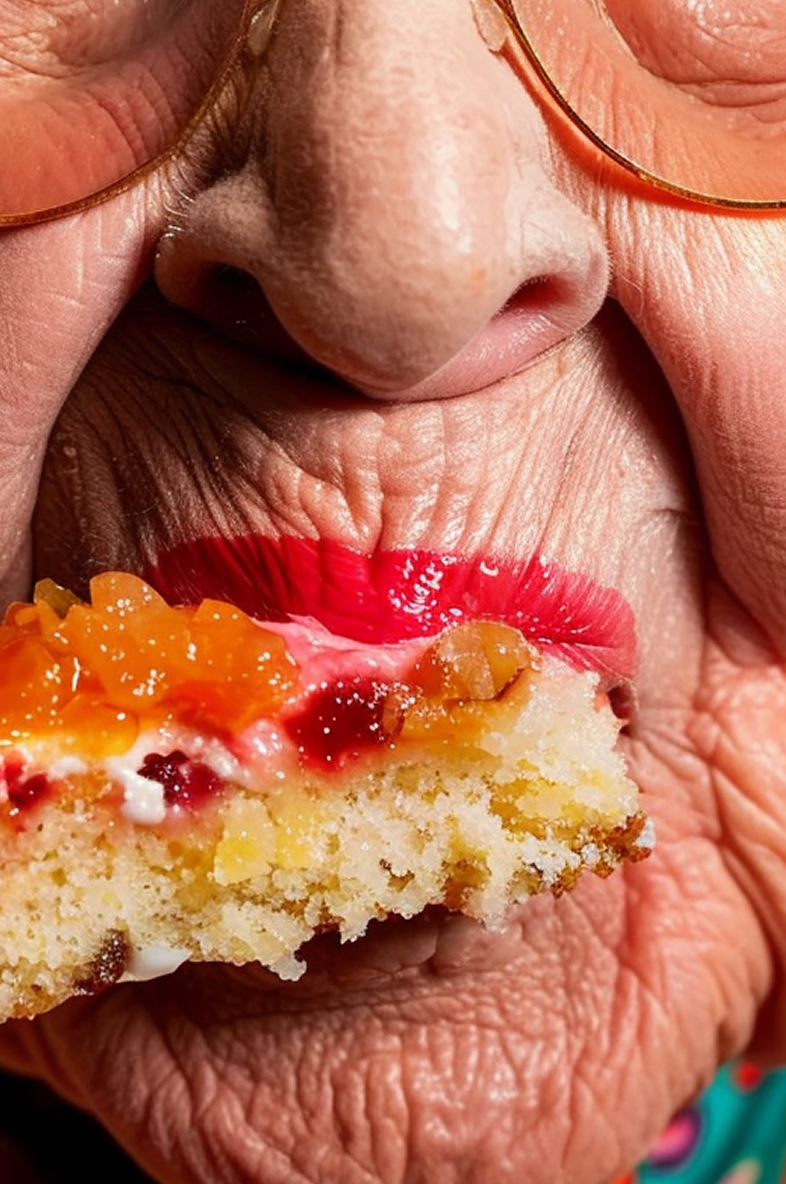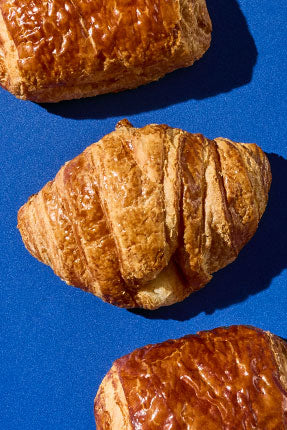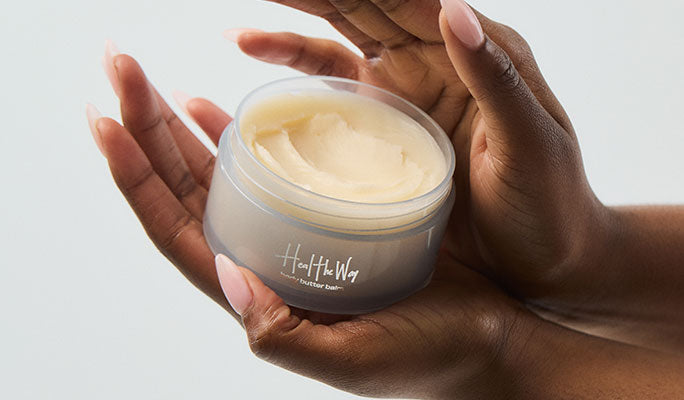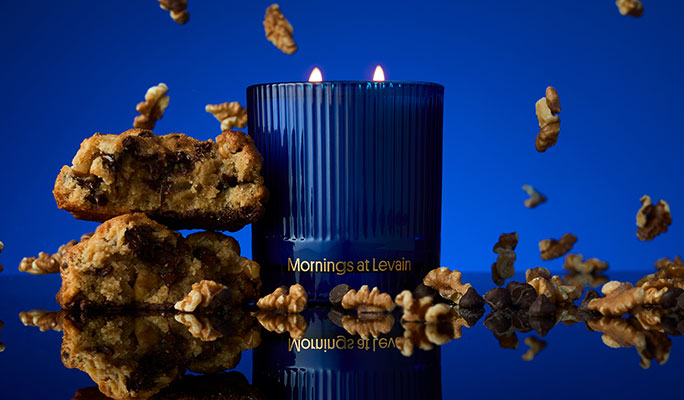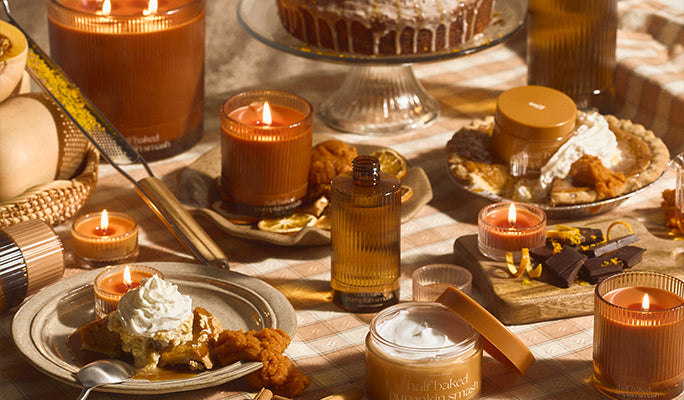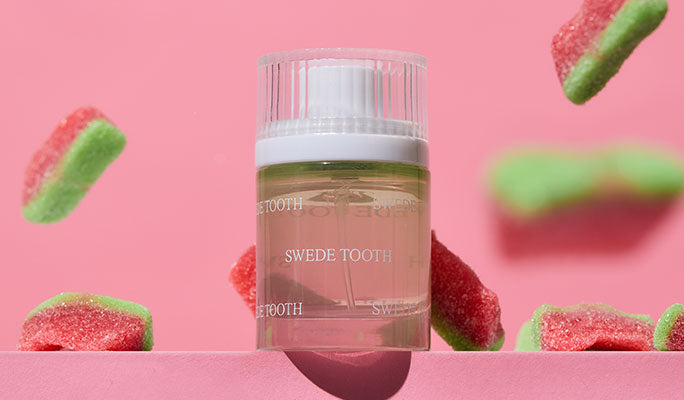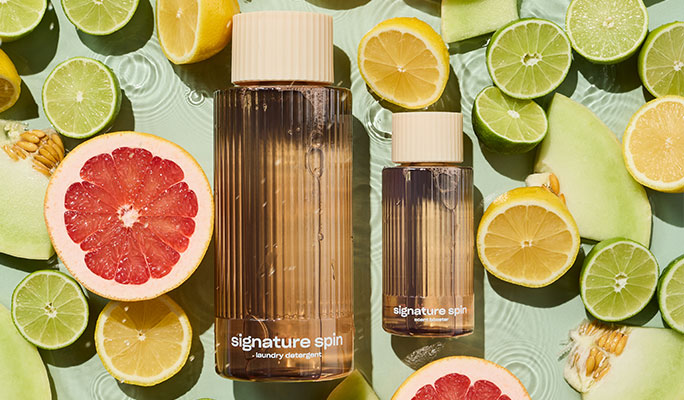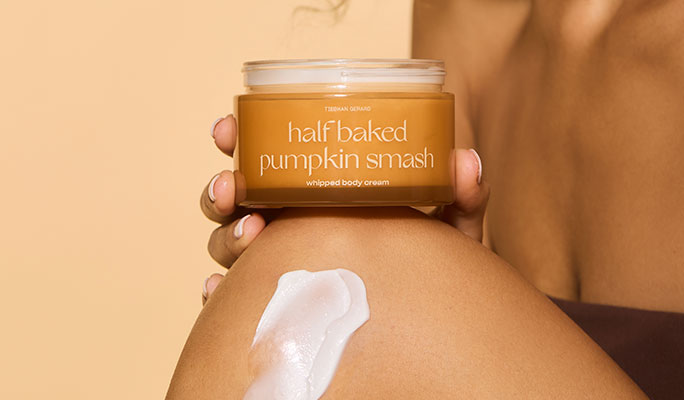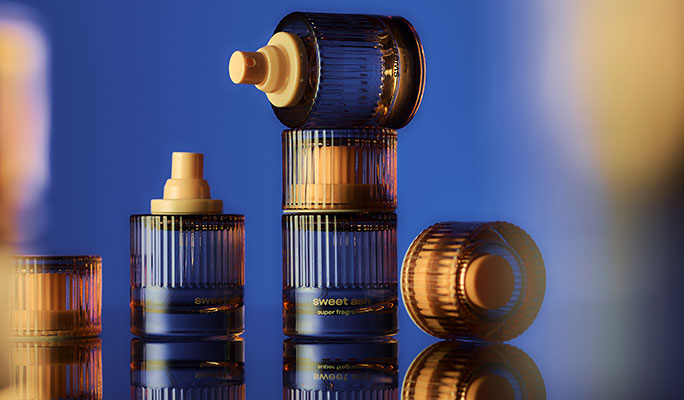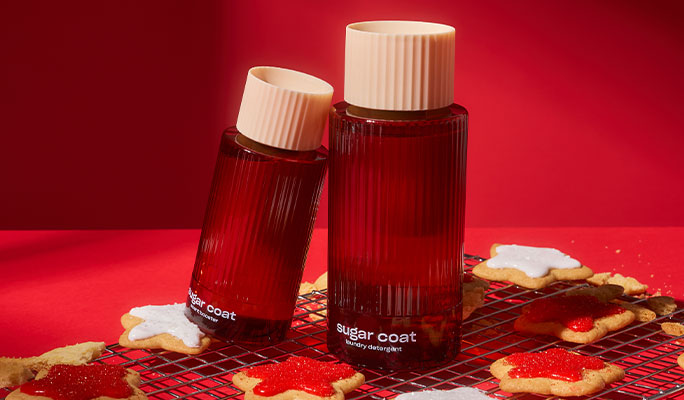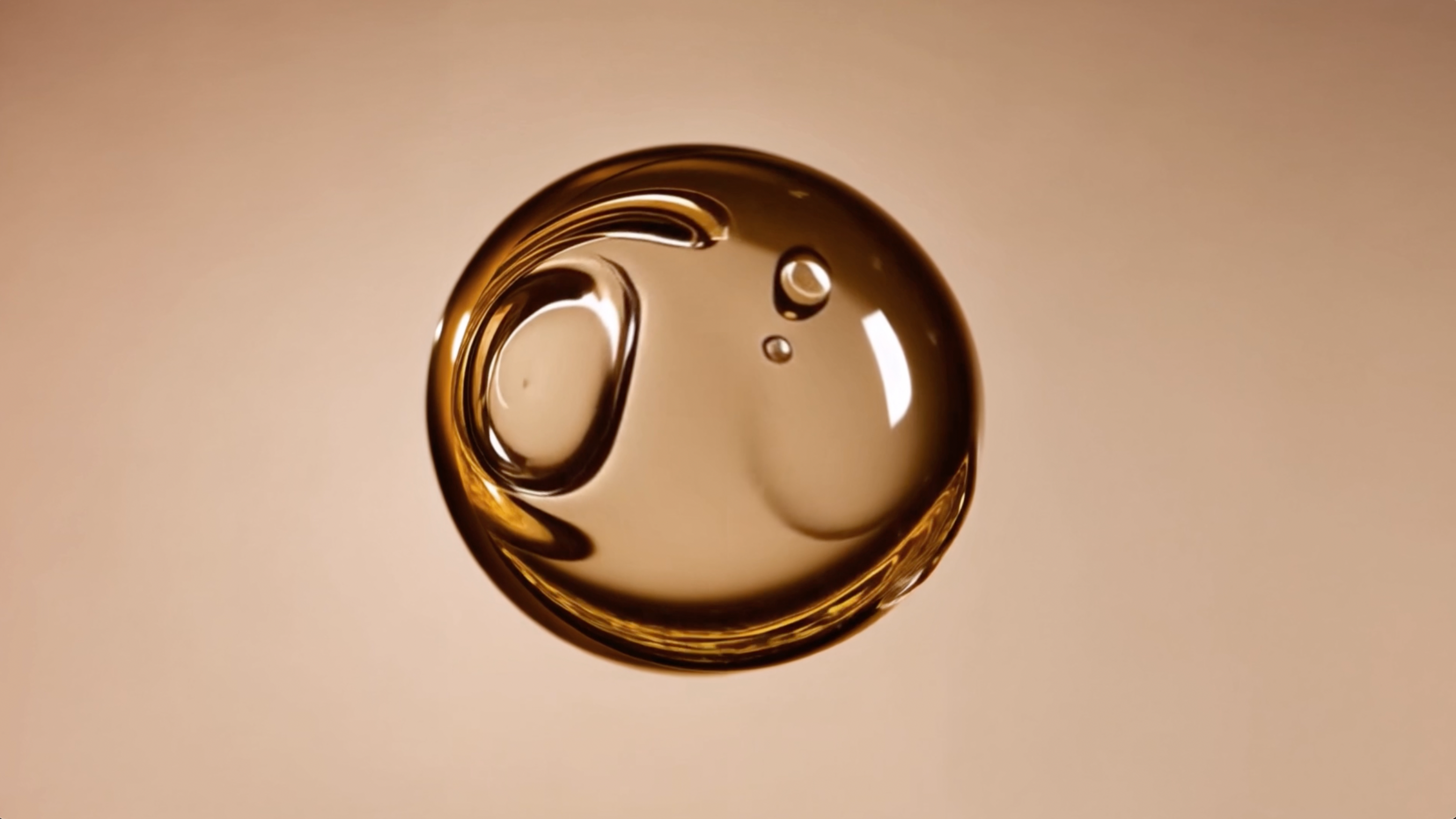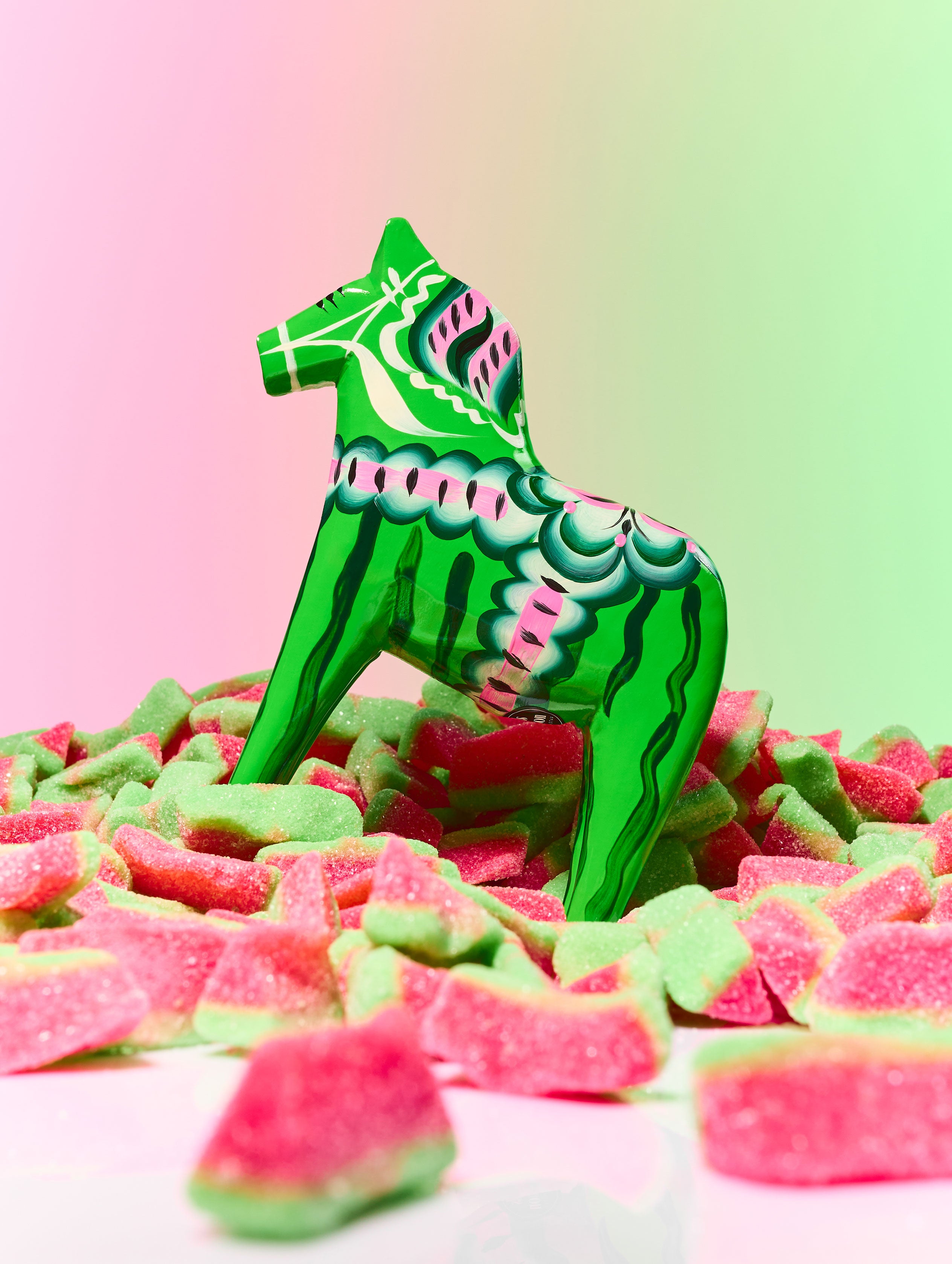Although enjoying the fragrance you wear is important, choosing a scent is more than just picking something that smells good. What you wear becomes part of your identity, evoking memories and emotions that influence how people perceive you.
For example, a warm vanilla scent similar to a hot latte can make you feel comfy and inviting, while a crisp citrus fragrance can have a fresh, bright energy.
This is why picking between an airy, refreshing body mist and a rich, sophisticated perfume can be a big decision. Understanding the differences and similarities between perfumes and body mists can make it easier to choose.
With a little insight, you’ll be able to select the right product and fragrance for your personality and lifestyle with ease. Here’s a complete guide to understanding body mists and perfumes, and which one is best for you.
What Are Body Mists?
Body mists are lightly scented sprays made of distilled water, alcohol, and essential oils or fragrance oils.
At Snif, our body mist collection consists of clean, whole-body fragrances made with light concentration and high impact.
How Long Do Body Mists Last?
A good-quality body mist can last one to three hours before needing to be reapplied. Since the oils in body mists are more diluted, they tend to evaporate quickly.
An easy tip for extending the scent of your body mist is to spritz it on top of your lotion so that the odorants cling to your skin. If your cream is scented, this can also create a layered fragrance.
How Concentrated Are Body Mists?
Body mists are not very concentrated. The level of fragrance oils in body mists is about 1-3%, though products may vary. This light blend typically makes them safe to apply all over the body, including your skin and hair!
What Is a Body Mist Best For?
Body mists are best for a burst of aroma and are typically used more casually than perfume. Their strengths include delivering light fragrances and subtle, casual scents.
Light Fragrance
Body mists deliver light fragrances, rather than being intense or overpowering. Although the gentle, airy aroma generally starts to fade within a couple hours, it provides you with the perfect excuse to give yourself some refreshing spritzes throughout the day.
On warm days when you want something light and fresh, we love our Berry Styles Body Mist. This fruity scent is a clean mixture of ripe blueberries, raspberries, lime, blue freesia, vanilla, and creamy woods. The sweet berry blend is tasty enough to make all the other toppings jelly (wink wink).
Subtle, Casual Scent
Body mists come off as casual and effortless because they do not have heavy base notes. Base notes are the most prominent aromas in a fragrance and are usually made with rich, heavy oils. The soft, subtle scent of your body mist can make you smell naturally good.
If you’re on the hunt for something deliciously easy-going, try our Hazel Split Body Mist. This gourmand fragrance features natural notes of cocoa, amberwood, creamy banana, coconut, hazelnut, and musk for a decadent scent stack that’s even more tempting than a midnight spoonful of hazelnut spread.
What Is Perfume?
Different from body mists, perfumes are designed to emit stronger fragrances. Perfumes are made by extracting fragrance oils and blending them with solvents like alcohol.
Our fragrance collection is long-lasting and made with clean, vegan formulas that are safe for skin and hair.
How Long Does Perfume Last?
Perfumes last longer than body mists, but their longevity depends on concentration. Perfumes categorized as eau de toilettes last three to six hours, eau de parfums last 6-12 hours, and the less common extrait de parfums last 12+ hours.
Although eau de toilettes have the shortest staying power, they’re still more potent than body mists. Their low concentration makes them gentle enough to maintain your hair's health.
How Concentrated Are Perfumes?
When it comes to perfumes, the higher the fragrance oil content, the greater the concentration. Eau de toilettes contain 5-15% fragrance oils, eau de parfums 15-20%, and extrait de parfums 20-40%.
What Is Perfume Best For?
Perfumes are best for projection and longevity, making them a popular choice for long days and special occasions. Their strengths include delivering stronger fragrances and scents that last.
Scent That Lasts
Not everybody has the time to reapply their fragrances throughout the day. With a high-quality perfume, this is no problem. Perfumes are made with rich base notes that cling to the skin for hours and linger in the air for longer.
Its precise longevity is based on whether it’s an eau de toilette or eau de parfum. Eau de toilettes don’t have as much longevity as other types of perfumes, but they still offer great projection and are safer to use on more sensitive areas of the skin.
Stronger Fragrance
The fragrance you wear can make a big impression. Thanks to intricate scent structures and higher concentrations of fragrance oils, the smell of perfume is more noticeable and has a stronger projection. Your perfume leaves a lingering scent, even when you leave the room.
From Head to Toe
Ultimately, selecting between body mist and perfume comes down to personal preference. Though there are lots of details to consider, like how strong you want it to smell or how long you want it to last, try not to overthink it.
At the end of the day, your fragrance should not only smell good but also make you feel good. Whether you want a sweet body mist that keeps you feeling positive throughout the day or a bold perfume that boosts your confidence all night, the “right” choice is the one that resonates with you the most.
Besides, who says you only have to choose one?
Sources:
How scent, emotion, and memory are intertwined — and exploited | Harvard Gazette
Essential Oils as Natural Sources of Fragrance Compounds for Cosmetics and Cosmeceuticals | PMC
